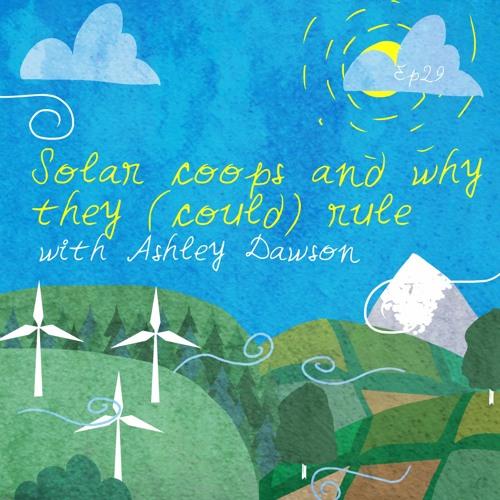
An Interview with Ashley Dawson
In today’s episode we talk with author, professor, and activist Ashley Dawson about the neoliberal city in the context of climate change and the liberatory potential inherent in community solar energy projects. The first half of the episode follows our guest’s book, Extreme Cities. The discussion starts from observations on the usual scale of reporting and perception of climate change – global or national, but not the urban scale. We talk about how large climate projects are often designed with planned obsolescence in mind, and first of all serve the interests of the elites; about the unequal impact of climate change and how communities often respond through what Ashely calls disaster communism; and about community solar energy as an example of such a collective (preventive in this case) response in the face of crisis.
The second half of the episode is based on Ashley’s book, People’s Power, and makes a case for community managed solar energy projects as a progressive tool through which to tackle the issue of energy poverty and the looming climate apocalypse. The topics that we cover include the solar commons as an analytical and discursive tool, issues of accessibility (financial, technological etc) surrounding solar projects, and reflections on how the state fits into the picture.
Public Power New York campaign website
The People's Power conversation series on YouTube:
In conversation with Stephanie LeMenager
In conversation with Patrick Bond & Trevor Ngwane
In conversation with Johanna Bozuwa
In conversation with Craig Morris

Comments
Painéis solare…
January 15, 2025, 7:35 am
This episode provides a compelling discussion on how community-driven solar energy initiatives can challenge the status quo and offer real solutions to both climate change and energy inequality. Ashley Dawson’s insights into the role of urban spaces in tackling these issues are thought-provoking and necessary for a more sustainable future.
Add new comment